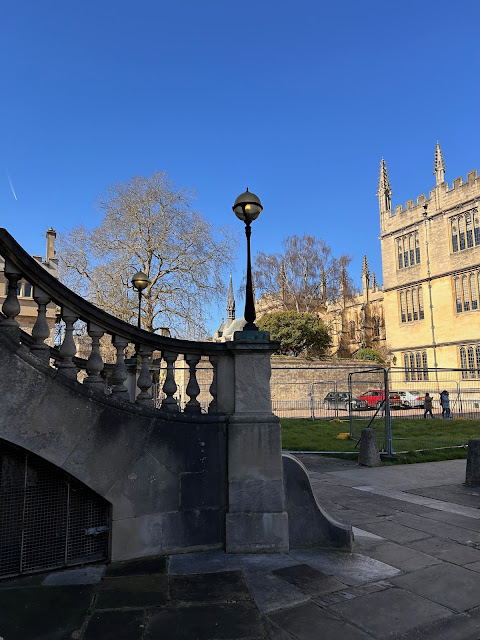Indeed I feel as I came too soon
To round your young May moon
And set the world a-gasping at my noon.
Yet some I must. So here are strawberries
Sun-flushed and sweet, as many as you please;
And here are full-blown roses by the score.
More roses, and yet more.
(May, eating strawberries, withdraws among the flower beds.)
(Christina Rossetti)
I mean, every month is bookish, so let this be the sum of the bookish month of May. It's hard to believe it's already time to wrap up the month of May. May sits in the "in between" space before summer officially kicks in, but it's certainly not spring anymore. The weather seems a bit uncertain, like it can't make up it's mind. Part of the month was lost in a blue sky daze, dry and hot. Then suddenly it took a dramatic turn to the stormy afternoons, whereby now I have to pay attention as I leave work - will I be able to run an errand or will I get caught in a deluge?
A quick day trip down to the coast, a little visit to my hometown, and then a bit of frolicking in Sarasota, of course my main goal was to visit the bookstore in the Selby Library, a favourite spot of mine since high school. It's always good to get back there.
I also had the privilege of attending the Chesterton Academy Gala, which was an inspiring evening celebrating the classical academy with discission on virtues missing from schools today. G.K. Chesterton wrote a lot about the Christian virtues, and is a good guide to us all as we think through living and learning (for the next generation, and for ourselves, no matter how old we are!).
And I took my niece book shopping as we had an afternoon hanging out, which was a joy. Then we came home and read. It makes me happy to browse books and see anyone excited to read. I grab those chances whenever I can.
Amongst many other books, I've been reading through this massive collection of the poems of Christina Rossetti. Every morning I read a handful of pages of her poems. I had no idea she had written so many. This book is 880 pages of her poems, and I am loving them. I've always liked Christina Rossetti, but I think now that I am visiting with her more, she's at the top of my poet favourites. She was a faithful Christian and a creative spirit. He writings play with different rhymes and musicality and it's just beautiful. Some poems are lyrical and emotional, some are a response to a reading in Scripture, some are children's poems, some like the extract above play with personifying nature (or the months of the year and it's simply delightful, and some are in praise of nature as God's creation.
Our heaven must be within ourselves,
Our home and heaven the work of faith
All thro' this race of life with shelves
Downward to death.
So faith shall build the boundary wall,
And hope shall plant the secret bower,
That both may show magnifical
With gem and flower.
Needless to say it's been a wonderfully bookish May, and I am very glad about it. June has a lot to live up to.





























